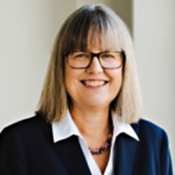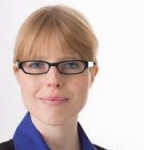Our EDI Committee is comprised of students, faculty, researchers and staff who care deeply about making our department a welcome, supportive, and inclusive community. Our current committee is made up of the following members, with several subcommittees working on focused initiatives.
Meet the Team
Faculty & Staff
Rick Marta || Chair

Rick (he/him) is an Associate Professor – Teaching Stream and Materials and Nanosciences (MNS) Undergraduate Advisor for the Departments Physics and Astronomy and Chemistry. He is a passionate and enthusiastic teacher who strives for his students’ success. He implements the use of technologies in his classes and provides extensive online support materials to his students. He travels yearly to Beijing, China, to teach students at the UW partner university, Beijing Jiaotong University (BJTU). Rick believes that the classroom should be an inclusive, welcoming, and empowering environment, in which all students feel like they belong.
Maya El-Baltaji || Staff Coordinator

Maya (she/her) is an Undergraduate Advisor. She joined the department in Jan 2023. Her main objective is to support students and ensure they are meeting their goals throughout their time at UWaterloo. As a former international student herself she recognizes the challenges that they face. She has an open-door policy, and students are encouraged to come by whenever needed.
Taylor Pacholko || Staff Representative

Taylor (They/Them) is the Physics and Astronomy Outreach Coordinator and Classroom Demonstrator. They joined the department in May of 2023 and look forward to providing supplements to the Physics education at the University. As a member of the LGBTQ+ community, they are enthusiastic about EDI initiatives and are looking forward to using their skills and knowledge to better EDI projects throughout the department. They believe that anyone can study Physics, and that learning should be inclusive to everyone. They welcome anyone to stop by their office to chat about EDI, Physics, or anything else.
Donna Strickland || Faculty Representative

Donna Strickland (she/her) is a professor in the Department of Physics and Astronomy at the University of Waterloo and is one of the recipients of the Nobel Prize in Physics 2018 for developing chirped pulse amplification with Gérard Mourou, her PhD supervisor at the time. They published this Nobel-winning research in 1985 when Strickland was a PhD student at the University of Rochester in New York state. Together they paved the way toward the most intense laser pulses ever created. The research has several applications today in industry and medicine — including the cutting of a patient’s cornea in laser eye surgery, and the machining of small glass parts for use in cell phones.
Strickland was a research associate at the National Research Council Canada, a physicist at Lawrence Livermore National Laboratory and a member of technical staff at Princeton University. In 1997, she joined the University of Waterloo, where her ultrafast laser group develops high-intensity laser systems for nonlinear optics investigations. She is a recipient of a Sloan Research Fellowship, a Premier’s Research Excellence Award and a Cottrell Scholar Award. She served as the president of the Optical Society (OSA) in 2013 and is a fellow of OSA, the Royal Society of Canada, and SPIE (International Society for Optics and Photonics). Strickland is an honorary fellow of the Canadian Academy of Engineering as well as the Institute of Physics. She received the Golden Plate Award from the Academy of Achievement and holds numerous honorary doctorates.
Russell Thompson || Faculty Representative

Dr. Thompson (he/him) works with self-consistent field theory and density functional theory. He earned his PhD from the Joint Programme for Theoretical Physics of the University of Western Ontario and then assumed a post-doctoral fellowship at the University of Reading in England. After further post-doctoral fellowships at the University of Pittsburgh and Los Alamos National Laboratory, he joined the Department of Physics and Astronomy at the University of Waterloo in 2004.
Christine Muschik || Faculty Representative

Christine (she/her) is an expert in the theory of quantum communication and quantum simulation. Quantum communication exploits the features of quantum mechanical systems for advantages in communication tasks, such as unbreakable security or significant reductions in the resources required to send a message. Quantum simulation uses one type of quantum system, over which one has complete control, to mimic the behaviour of another, where control is limited or nonexistent. Quantum simulation has the potential to guide the development of new materials or complex molecules and expand our understanding of fundamental physics.
Bonnie Worthing || Staff Representative

.
.
.
.
Undergraduate Students
The EDI committee does not currently have any Graduate or Undergraduate students on the committee. In the past there have been representatives from different Physics clubs on campus in addition to unaffiliated Graduate and Undergraduate students. If you are interested in the committee please follow the contact information below.
Contact Us
You can reach us directly at ramarta@uwaterloo.ca with your questions, comments and concerns and we will respond as soon as possible.